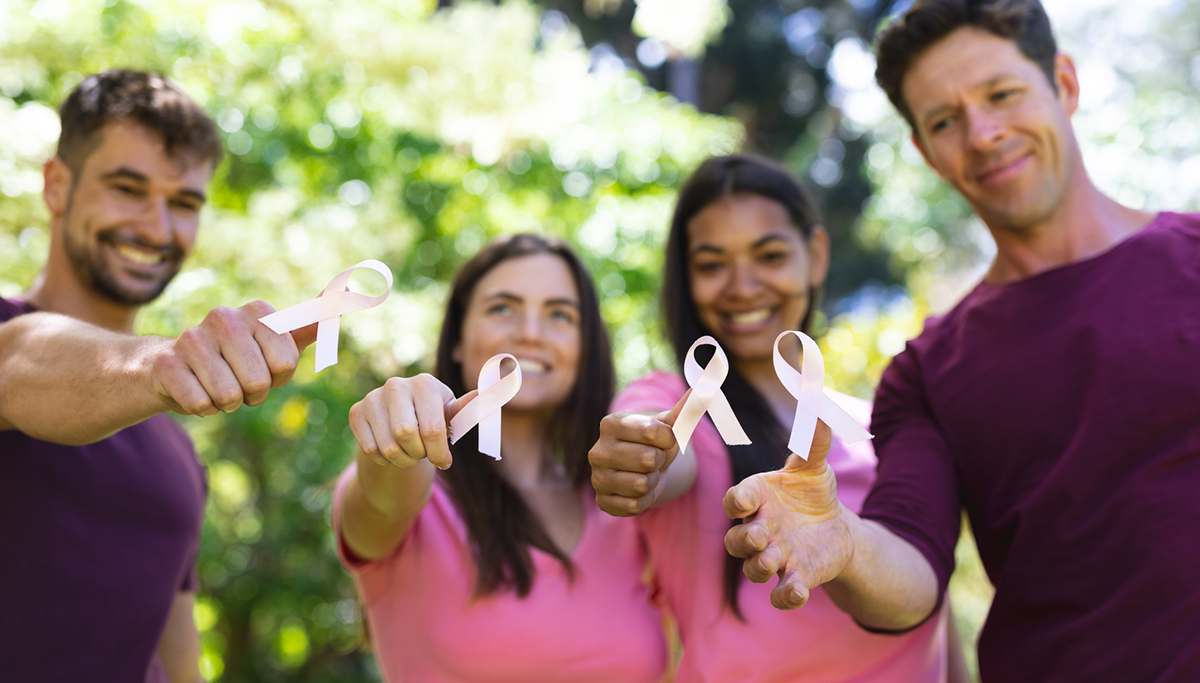The Connection Between Oral Health and Breast Cancer Risk
October is Breast Cancer Awareness Month, a time dedicated to raising awareness about breast cancer, supporting those affected, and promoting the importance of early detection. While most people focus on mammograms, self-exams, and healthy lifestyle choices, there’s another critical aspect of your health that shouldn’t be overlooked—your gums.
You might be wondering, what do gums have to do with breast cancer? Surprisingly, your oral health plays a more significant role in your overall well-being than you might think.
The connection between oral health and breast cancer risk
Research has shown there is a potential link between gum disease (also known as periodontal disease) and an increased risk of breast cancer. Gum disease is a chronic infection of the gums that can lead to inflammation, bleeding, and eventually, the loss of teeth. It’s caused by the buildup of plaque and tartar on the teeth, which harbors harmful bacteria.
These bacteria can enter the bloodstream through the gums, leading to inflammation in other parts of the body. Chronic inflammation is a known risk factor for many types of cancer, including breast cancer. In fact, studies have found that women with periodontal disease are more likely to develop breast cancer compared to those with healthy gums.
Why oral health matters during breast cancer treatment
For women undergoing breast cancer treatment, maintaining good oral health becomes even more crucial. Treatments such as chemotherapy and radiation can weaken the immune system, making it harder for the body to fight off infections, including those in the mouth. Additionally, some cancer treatments can cause dry mouth, a condition that reduces saliva flow and increases the risk of tooth decay and gum disease.
Making sure you or a loved one takes care of their oral health during treatment is a small step that can make a big impact on keeping their mouth healthy.
Steps to improve your oral health
Whether you’re focused on prevention or currently undergoing treatment for breast cancer, here are some steps you can take to keep your gums and mouth healthy:
- Practice good oral hygiene: Brush your teeth twice a day with fluoride toothpaste and floss daily to maintain a good oral hygiene routine.
- Visit your dentist regularly: Regular dental check-ups and cleanings are essential for preventing gum disease. Your dentist can spot early signs of gum problems and provide treatment before they become more serious.
- Eat a balanced diet: A diet rich in fruits, vegetables, and whole grains can support your immune system and help reduce inflammation in the body, including the gums.
- Stop using tobacco products: Smoking and using other tobacco products can significantly increase your risk of gum disease and oral cancer. Quitting tobacco is one of the best things you can do for your oral and overall health.
- Stay hydrated: Drinking plenty of water helps keep your mouth moist, reducing the risk of dry mouth and helping to wash away food particles and bacteria.
Supporting breast cancer awareness
As we observe Breast Cancer Awareness Month, it’s important to remember that health is holistic—what affects one part of your body can impact others.
If you or a loved one is battling breast cancer, consider discussing your oral health with both your dentist and oncologist. Together, they can help you create a plan to maintain healthy gums throughout your treatment journey.
Let’s make this October not just about raising awareness, but also about taking action—starting with our smiles.

